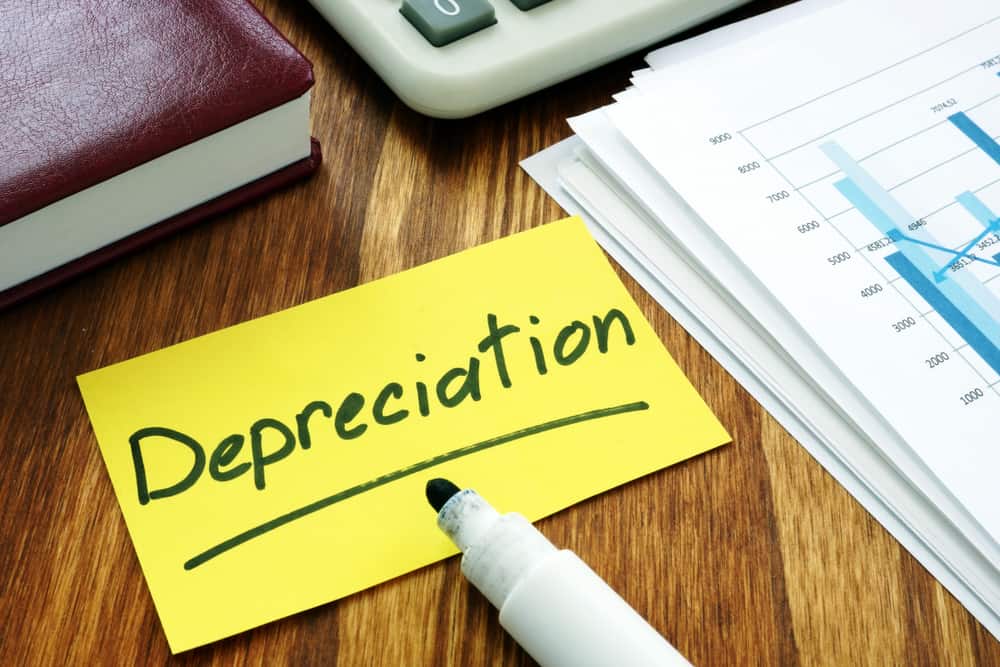Learn more about depreciation in accounting and how it affects UK businesses. Gain valuable insights into optimizing your financial reporting today.
What Is Depreciation?

Depreciation refers to the systematic allocation of a cost of tangible assets over their useful lives. It is an accounting method that is primarily used to recognize the gradual decrease in the value of an asset due to wear and tear and other factors.
Generally, depreciation is used for fixed assets with a life longer than one accounting period, such as buildings and machinery. It’s also important to remember that depreciation only refers to tangible assets, while intangible assets are amortized.
Depreciation is important because it allows businesses to compare the cost of a fixed asset with the revenues it generates. At the end of its life, a fixed asset may be sold at a reduced rate, known as its salvage value.
By spreading the cost of fixed assets over multiple periods, depreciation can help to accurately report the financial performance of a company. Additionally, it can help a company accurately report the value of its assets on the balance sheet.
Types Of Depreciation
Straight line depreciation
Straight-line depreciation is one of the most common depreciation methods. It also has the most straightforward ways to calculate depreciation. Using this method, the cost of a fixed asset is evenly spread over its useful life.
The straight-line method of calculating depreciation is as follows:
Annual Depreciation Expense = (Asset Cost – Residual Value) / Useful Life
The straight-line depreciation method assumes that the asset depreciates by an equal amount each year and doesn’t consider the actual usage or production of the asset. The annual depreciation expense remains the same throughout the useful life of the fixed asset.
Units of production depreciation
The units of production method, also known as the activity-based method, calculates depreciation based on the actual usage or production of the asset. This method is commonly used for a fixed asset whose life is determined by the total units produced or hours of operation.
The formula to calculate depreciation using this method is:
Depreciation Expense per Unit = (Cost of Asset – Residual Value) / Total Units of Production
Annual Depreciation Cost = Expense per Unit x Units Produced in a Given Period
What sets this method apart is that it considers that assets lose value based on their output or usage. This means that higher usage leads to higher depreciation expenses, while lower usage leads to lower depreciation expenses.
Double declining depreciation
The double declining balance method, also known as the accelerating depreciation method, assumes that an asset depreciates more in its early years and less in its later years. This method allows for higher depreciation expenses in the earlier period and lower expenses as the asset ages.
The formula to calculate double declining balance depreciation is:
Depreciation Expense = Book Value at the Beginning of the Period x (2 / Useful Life)
Book Value = Cost of Asset – Accumulated Depreciation
This method uses a depreciation rate that is double the rate of the straight-line. However, the depreciation expenses are adjusted to ensure that the asset’s book value doesn’t go below its estimated residual value.
How Does Depreciation Affect Financial Statements?
Depreciation is important for financial reporting purposes and can impact financial statements in several ways.
On the income statement, it reduces net income by recording a portion of the asset’s cost as an expense. It reduces the value of the asset and increases accumulated depreciation on the balance sheet. Additionally, depreciation affects the cash flow statement by adjusting the net income figure.
Can Depreciation Be Avoided Or Minimized?
While depreciation is a natural occurrence for fixed assets, businesses can easily take steps to minimize its impact.
For example, companies can regularly upgrade equipment or lease fixed assets instead of purchasing them. Still, it’s important to note that these strategies may have other financial implications.
Final Thoughts
Depreciation is a fundamental concept in accounting that allows businesses to accurately allocate the cost of assets over their useful lives. Although understanding depreciation methods and their impact on financial statements is crucial for sound reporting, it can be tricky. Therefore, it’s recommended to hire a qualified accountant instead.
References
https://gocardless.com/guides/posts/what-is-depreciation-in-accounting/